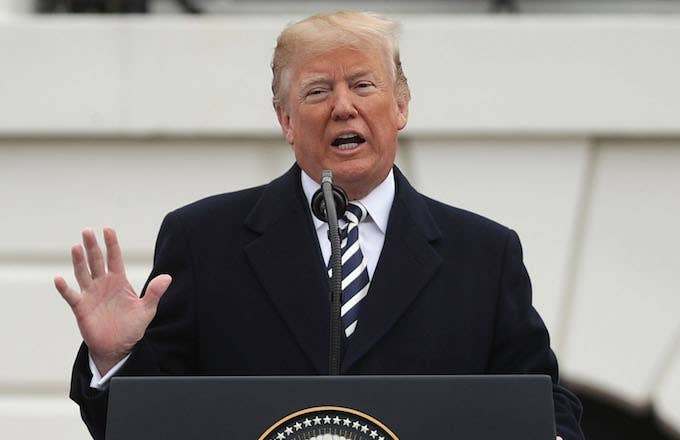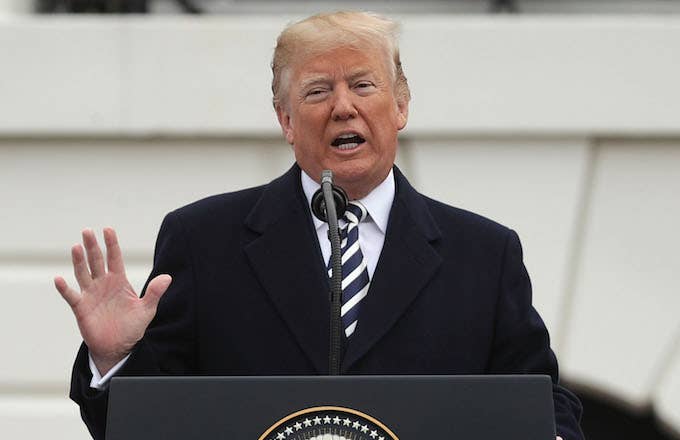
In the 15 months since Donald Trump has taken the highest seat in the country, there has been plenty of discussion about the pathology of his supporters, isolating just what could have pushed the unlikely figure into the White House. The most popular conclusion generally paints Trump supporters as reactionary white, Christian men with "economic anxiety" who saw his campaign promises as a saving grace.
According to the New York Times, a new study from the Proceedings of the National Academy of Sciences suggests that anxiety is instead a fear of shifting power dynamics in America. University of Pennsylvania political science and communications professor Diana C. Mutz, the author of the study, offered a succinct explanation.
"It’s much more of a symbolic threat that people feel," she said. "It’s not a threat to their own economic well-being; it’s a threat to their group’s dominance in our country overall." In the study, Mutz used survey data of about 1,200 people from both 2012 and 2016 and noticed some pretty stark patterns. While voters are influenced by the country's economic status, there's no evidence that their individual financial situations have the same effect on who they cast their ballots for. Mutz found that neither job loss or otherwise worsening financial situations between 2012 and 2016 nor the unemployment or available manufacturing jobs in one's community had any real impact on political decisions.
"It used to be a pretty good deal to be a white, Christian male in America, but things have changed and I think they do feel threatened," said Dr. Mutz. She also analyzed another survey from 2016 conducted by the National Opinion Research Center at the University of Chicago, highlighting that there was no link between Trump support and anxieties about education, medical costs, and retirement, which also takes down the "left behind" theory.

